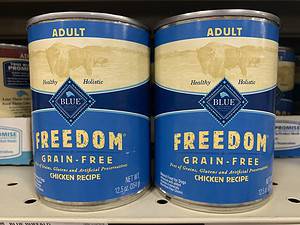Dogs are often a source of great joy, humor, and companionship. These incredible creatures are known for being loyal, playful, and loving. Owning a dog is often a life-changing experience. The responsibility, commitment, and engagement it requires can be deeply rewarding. However, dog ownership is a huge responsibility and is not always the right choice for anyone at a given time. This article explores 16 reasons not to get a dog, as well as a couple of other ways to get canine connection without the responsibility of ownership.
1. Dogs are a massive time commitment.

Training and socializing a dog takes time and energy, especially with puppies.
©DTeibe Photography/Shutterstock.com
The most important reason to not get a dog is the time and energy commitment. Dogs require a hefty amount of time and energy to properly socialize, stimulate, and exercise. Learning from other pet owners, books, and online resources can reveal the massive amount of energy and consideration that goes into owning a dog.
2. Dogs are a massive financial commitment.
Owning a dog is expensive. There are numerous expenses associated with keeping a dog healthy and happy. The total cost of owning a dog can range from hundreds to thousands of dollars per year. Let’s explore some of the biggest expenses of owning a dog, which are numbers 3-6 on this list.
3. Buying a Dog
Pet dogs cost money in most cases. While dog breeders have a reputation for high prices, even animal shelters typically have adoption fees. The cost of a dog can range from around $50-$3500, depending on where you buy them and what breed they are.
4. Food Expenses

Dogs require a healthy and complete diet.
©iStock.com/undefined undefined
Dog food is one of the main expenses of dog ownership, and the cost of dog food is currently rising due to inflation. You can expect to spend anywhere from around $300-2,000 or more per year on dog food depending on your dog’s dietary needs and preferences. The best dog foods are often more expensive than lower-quality foods, which can make it challenging to provide a healthy diet on a small budget. This is not to suggest that lower-income people should not get a dog, but rather that the costs of owning a dog can require intense budgeting.
5. Veterinary Expenses
Medical care can easily become the most expensive aspect of dog ownership. At a baseline, the ongoing cost of flea and tick prevention can range from about $50-$250 per year. However, if your dog needs any medical care beyond that, veterinary care can quickly become highly expensive.
6. Toys and Supplies Expenses

Dogs need play and stimulation in order to be happy and healthy.
©Rita_Kochmarjova/Shutterstock.com
Lastly, dogs require a range of toys and other supplies. The list includes supplies such as grooming tools, poop bags, collars/harnesses, and leashes. These supplies add to the upfront cost of getting a dog, as well as to the maintenance cost due to needing to replace the supplies over time.
7. Cleaning pet waste is not fun.
A big part of owning a dog is that they poop and pee multiple times per day, and dog owners have to deal with the mess. Owning a dog means bringing poop bags on every walk and constantly cleaning poop in your yard. Additionally, dogs can sometimes make messes in the house for a range of reasons, and dog owners need to be prepared for this possibility.
8. Dog barking can be overstimulating.
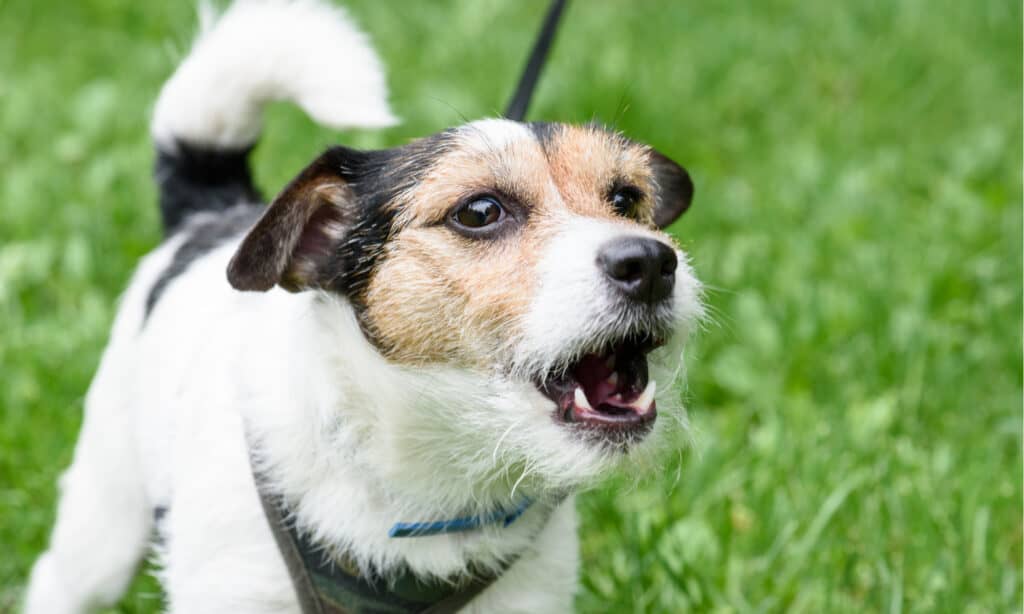
Dog barking is annoying to some people and terrifying to others.
©alexei_tm/Shutterstock.com
Another challenge of dog ownership is the sound of dog barking. While some dogs bark more than others, and training and socialization can prevent a lot of barking, it is still a factor in dog ownership. For example, even if your dog does not bark, other dogs may bark at your dog on walks. The sound of a dog barking affects some people more than others. While some people are unphased, others find it annoying or upsetting. It is important to consider how the sound of dog barking affects you before getting a dog.
9. Dog dander is a potential allergen.
Some people are allergic to dog dander, and the symptoms are often uncomfortable. According to the American Lung Association, pet dander can cause a runny nose, itchy eyes, and shortness of breath in people with sensitivities. However, if an allergy is your main barrier to dog ownership, you may want to read about hypoallergenic dog breeds.
10. Dog hair adds to house cleaning time.
Another big reason to not get a dog is the added time and effort of house cleaning. Even for people without a pet dander allergy, having a dog in the house still means more frequent cleaning. Dog hair can quickly build up on carpets and hard floors alike, requiring frequent vacuuming and/or sweeping,
11. Dogs complicate housing.

Many apartment buildings don’t allow dogs or charge substantial monthly fees.
Image: Sandronize, Shutterstock
©Sandronize/Shutterstock.com
Owning a dog generally makes searching for housing more challenging. Some places do not allow dogs altogether, while others may not provide enough space for certain dogs. If you do not own a home, this is one potentially challenging factor of dog ownership to consider.
12. Dogs complicate travel.
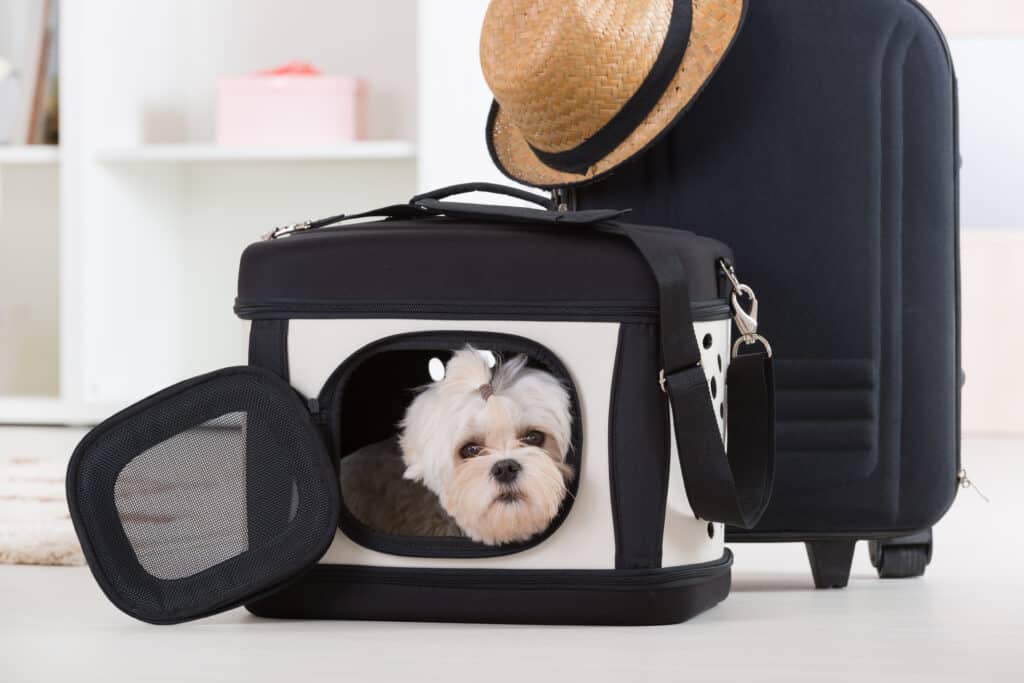
While dogs can sometimes join humans for travel, this is not always allowed or preferred.
©Monika Wisniewska/Shutterstock.com
A dog adds another logistical consideration to travel plans. Bringing a dog along during travel may be impossible, challenging, or undesirable. On the other hand, leaving a dog at home requires that you ask or hire someone to care for them. This can be potentially stressful or costly.
13. A dog may wake you up early.
This varies from one dog to another, but some dogs wake their owners up early for food, attention, or other needs. If you are not a morning person, or you appreciate having mornings to yourself, having to immediately tend to a dog each morning may not be ideal for you.
14. A person close to you is afraid of dogs.
If you are close with someone who fears dogs, you may decide against dog ownership. A person may fear dogs due to trauma, lack of familiarity, or other reasons. While owning a dog may be an opportunity to decrease fear if the person desires and consents to it, this is a large and likely challenging commitment.
15. Dogs can have a range of behavior issues.
Due to a range of reasons, dogs can develop challenging behavior issues. Some of the most common are barking, chewing, and aggression. Even well-meaning people can struggle with the amount of time, effort, and commitment it can take to change these behaviors.
16. Saying goodbye can be challenging.
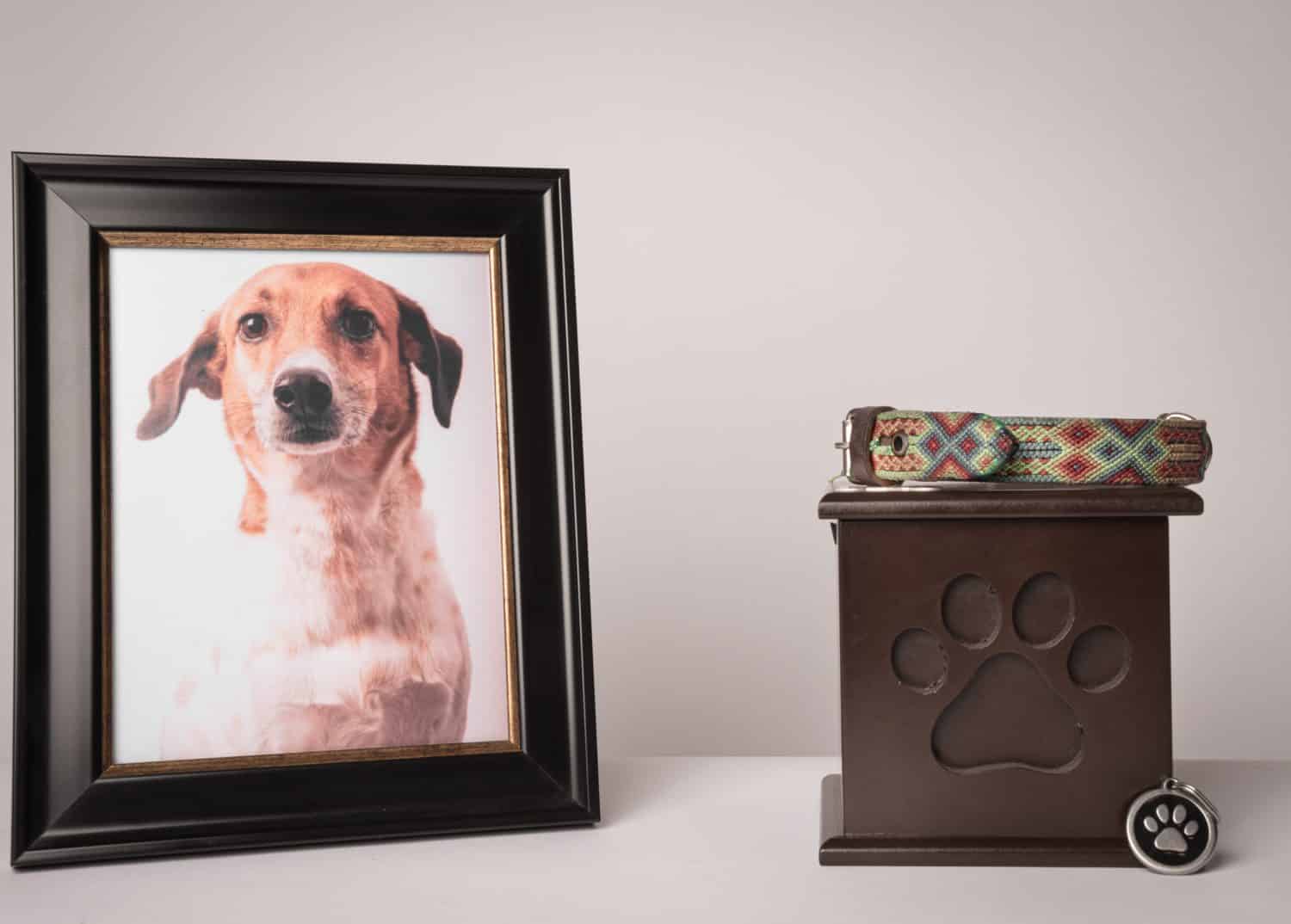
Losing a beloved pet can be as painful as losing a human family member.
Image: Claudia Luna Mtz, Shutterstock
©Claudia Luna Mtz/Shutterstock.com
The final reason to not get a dog is that losing a dog, whether to death or rehoming, is often a heavy emotional experience. Although death is a natural part of life, grief can be overwhelming. Dogs only live for about 7-12 years, which can fly by. And in the other case of saying goodbye to a dog, rehoming can also bring up grief. A range of circumstances can lead to a person choosing to rehome a dog, and it is often a difficult decision. Being certain of and prepared for dog ownership helps make this scenario less likely, but it is always possible that circumstances change.
Conclusion
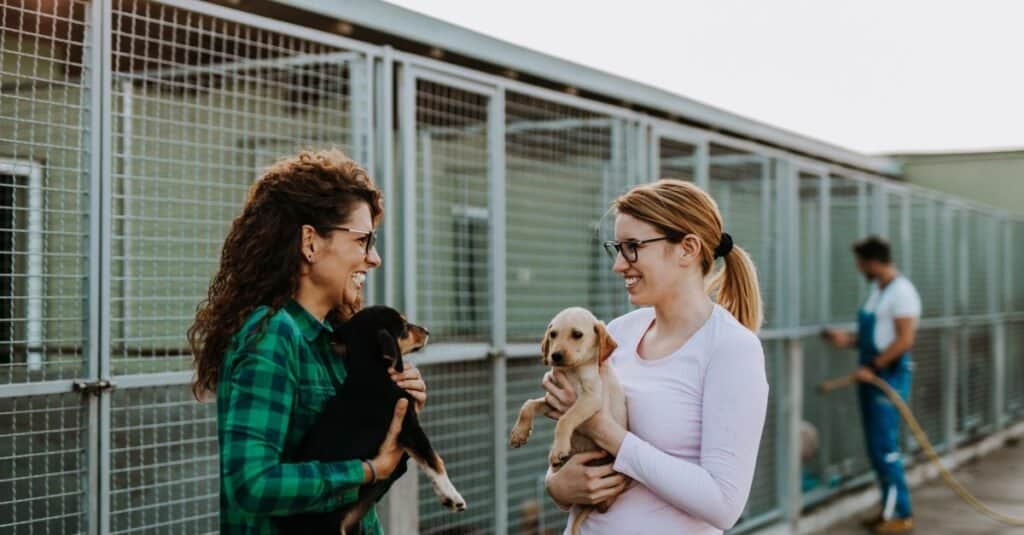
Volunteering at an animal shelter is an opportunity to connect with dogs.
©hedgehog94/Shutterstock.com
While there are many important reasons to not get a dog, many people still find that the positivity a dog brings to their life outweighs the downsides. Considering all of the downsides can help you realistically consider and prepare for dog ownership.
Even if dog ownership is not right for you at this time, there are still other ways to create meaningful relationships with dogs. For those who still want a canine connection without ownership, dog sitting or volunteering at an animal shelter are great options to consider.
The photo featured at the top of this post is © Simon Collins/Shutterstock.com
Thank you for reading! Have some feedback for us? Contact the AZ Animals editorial team.





